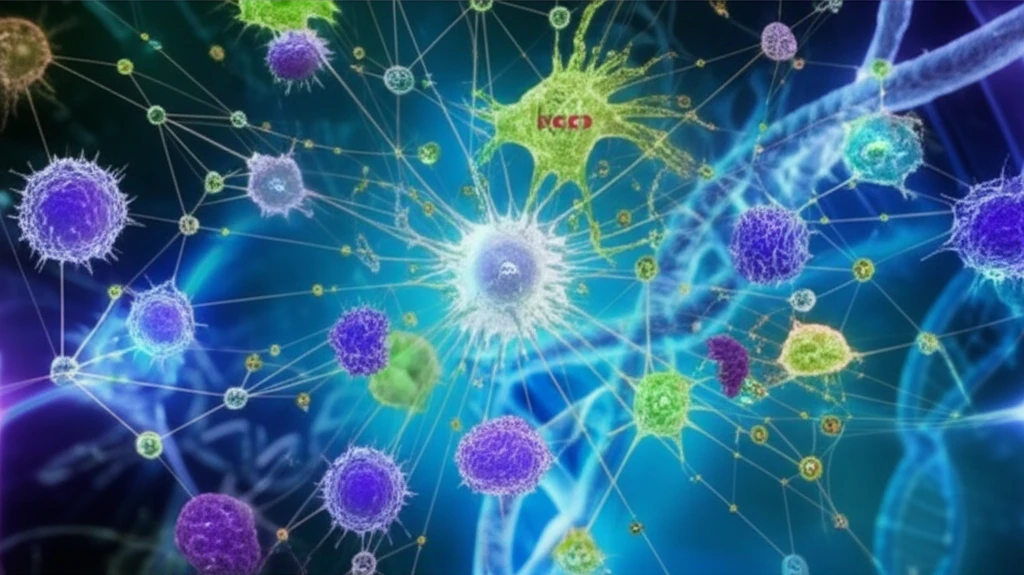
Ikaros: The Unsung Hero in Cancer, Immunity, and Autoimmune Diseases
"Discover how this critical protein regulates everything from leukemia to lupus, offering new hope for targeted therapies."
In the intricate world of molecular biology, certain proteins stand out for their broad influence on health and disease. One such protein is Ikaros, a transcription factor encoded by the IKZF1 gene. Ikaros isn't just another molecule; it's a master regulator involved in everything from the development of immune cells to the suppression of tumors. Recent research has illuminated the diverse roles of Ikaros in hematological malignancies (blood cancers), solid tumors, and autoimmune diseases, marking it as a critical target for novel therapeutic interventions.
Transcription factors like Ikaros control gene expression by binding to specific DNA sequences, effectively turning genes 'on' or 'off.' This regulation is crucial during cell development and differentiation. Ikaros is particularly vital in the hematopoietic system, which is responsible for producing all blood cells. Its influence extends beyond blood cells, affecting various tissues and systems in the body.
This article delves into the multifaceted functions of Ikaros, exploring its significance in maintaining normal cellular processes and its involvement in disease. By understanding Ikaros, we can potentially unlock new strategies to combat cancer, autoimmune disorders, and other related conditions. Let's explore how Ikaros impacts our health and the exciting possibilities it holds for future treatments.
What Does Ikaros Do?

Ikaros, encoded by the IKZF1 gene, is a transcription factor essential for lymphocyte specification and differentiation. Its functions are exerted in nearly all hematopoietic cell types, from stem cells to mature lymphoid and myeloid cells. Non-hematopoietic cells are also functional targets of Ikaros. Key functions include:
- Normal Hematopoiesis: Ensures the proper development and function of blood cells.
- Autoimmune Suppression: Prevents the immune system from attacking the body's own tissues.
- Tumor Suppression: Helps to prevent the formation and spread of cancer cells.
- Lymphoblastic Cells Deficiency: Results in a shortage of crucial immune cells.
- Autoimmunity: Leads to conditions where the immune system attacks the body.
- Malignancies Development: Increases the risk of blood cancers (leukemia) and solid tumors.
The Future of Ikaros Research
Ikaros holds immense potential for therapeutic interventions. Targeting Ikaros might provide more effective strategies for treating cancer and immune-related diseases. Further research into Ikaros's functions and regulatory mechanisms could pave the way for novel therapies, offering new hope for those affected by these challenging conditions. As we continue to unravel the complexities of Ikaros, we move closer to innovative treatments that can improve health and extend lives.
